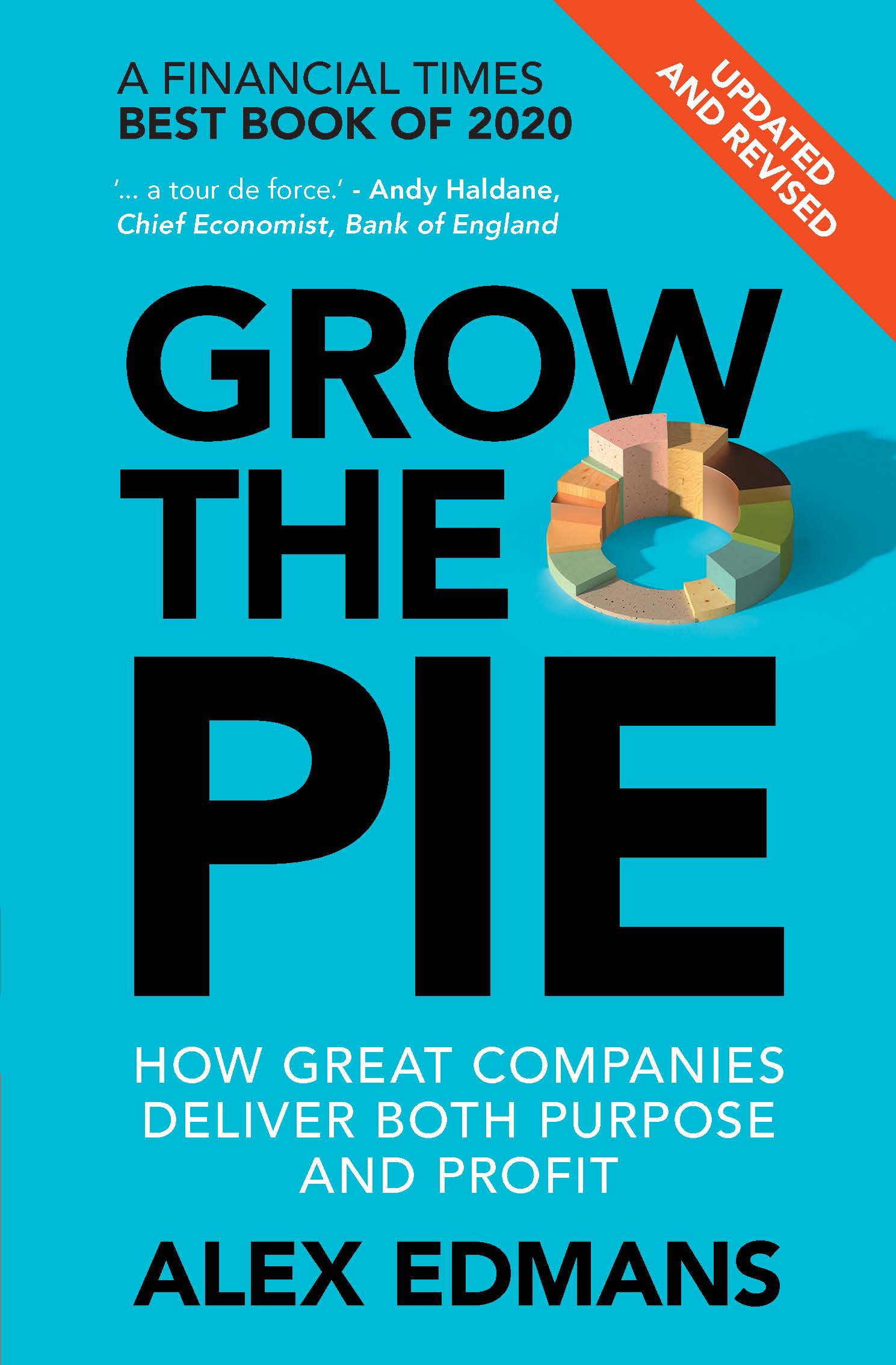Alex Edmans is Professor of Finance at London Business School. Alex has a PhD from MIT as a Fulbright Scholar, and was previously a tenured professor at Wharton and an investment banker at Morgan Stanley. Alex has spoken at the World Economic Forum in Davos, testified in the UK Parliament, and given the TED talk “What to Trust in a Post-Truth World” and the TEDx talk “The Social Responsibility of Business” with a combined 2.4 million views. He serves as Mercers School Memorial Professor of Business at Gresham College, giving a four-year programme of lectures to the public, and on Royal London Asset Management’s Responsible Investment Advisory Committee. Alex’s book, “Grow the Pie: How Great Companies Deliver Both Purpose and Profit”, was featured in the Financial Times list of Business Books of the Year for 2020, and he is a co-author of “Principles of Corporate Finance” (with Brealey, Myers, and Allen) for the 14th edition to be published in April 2022. He was named Professor of the Year by Poets & Quants in 2021.




